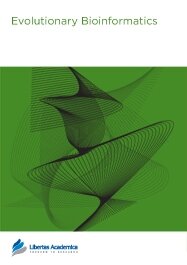

Publication Date: 25 Jun 2009
Type: Methodology
Journal: Evolutionary Bioinformatics

Homologous recombination is a pervasive biological process that affects sequences in all living organisms and viruses. In the presence of recombination, the evolutionary history of an alignment of homologous sequences cannot be properly depicted by a single bifurcating tree: some sites have evolved along a specific phylogenetic tree, others have followed another path. Methods available to analyse recombination in sequences usually involve an analysis of the alignment through sliding-windows, or are particularly demanding in computational resources, and are often limited to nucleotide sequences. In this article, we propose and implement a Mixture Model on trees and a phylogenetic Hidden Markov Model to reveal recombination breakpoints while searching for the various evolutionary histories that are present in an alignment known to have undergone homologous recombination. These models are sufficiently efficient to be applied to dozens of sequences on a single desktop computer, and can handle equivalently nucleotide or protein sequences. We estimate their accuracy on simulated sequences and test them on real data.
PDF (1.58 MB PDF FORMAT)
RIS citation (ENDNOTE, REFERENCE MANAGER, PROCITE, REFWORKS)
BibTex citation (BIBDESK, LATEX)
XML
PMC HTML
Publishing in Air, Soil and Water and Water Research was the best experience I have had so far in an academic context. The review process was fair, quick and efficient. I congratulate the team at Libertas Academica for a very well managed journal.Magnus Karlsson (IVL Swedish Environmental Research Institute, Stockholm, Sweden) What Your Colleagues Say
Copyright © 2012 Libertas Academica Ltd (except open access articles and accompanying metadata and supplementary files.)
FacebookGoogle+Twitter
PinterestTumblrYouTube